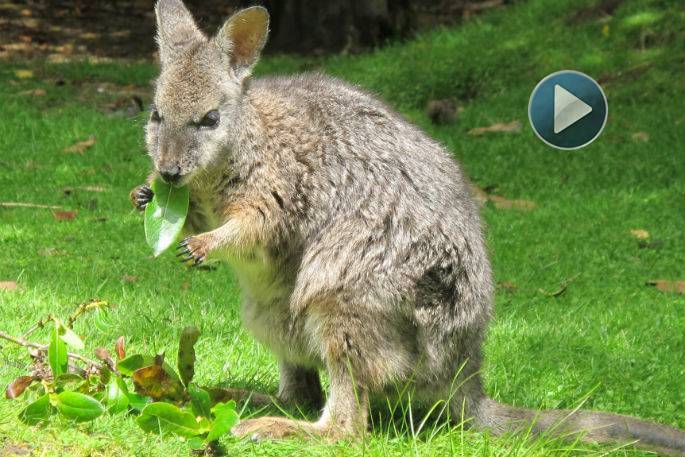People are being asked to report any wallaby sightings this summer.
Wallabies are much like possums and can affect food and shelter for native birds and animals as they destroy native bush by feeding on seedlings, ferns and grasses.
In large numbers they can also cause problems for forestry and farming by feeding on pine and eucalyptus seedlings and competing with stock for pasture.
Wallabies are classified as an unwanted organism in the Biosecurity Act and possession of any live wallaby is an offence, unless by exemption.
Generally, exemptions will only be considered for petting zoos or wildlife parks that meet certain criteria.
Dama wallabies were first released near Lake Ōkāreka in 1912, says a post on the Bay of Plenty Regional Council website.
"Since then they have been steadily expanding their distribution.
"It is estimated that if no control work is undertaken, a third of the North Island could be impacted by the spread of wallabies within 50 years."
Why are wallabies an issue?
Wallabies have a huge appetite for many of our native seedlings, shrubs, ferns and grasses which prevents their regeneration, changing the structure of our forests and reducing their ability to support our native birds and other wildlife.
Wallabies love pasture grasses, which means they compete with livestock for food.
As wallabies are nocturnal and cautious, they can be hard to find.
The Bennett's wallaby, found in South Canterbury and spreading into Otago, is also threatening native ecosystems, farms and forests.
If both species are not controlled, wallabies could spread across one third of both the North Island and South Islands over the next 50 years and could New Zealanders $84 million a year by 2025 (includes lost farm production and ecosystem services).
In 2020 as part of the ‘Jobs for Nature' funding, $27m was allocated over a four year period to control wallabies in New Zealand. This control is for Bennett's wallabies in the South Island and dama wallabies in the North Island. Administered by Biosecurity NZ (MPI), the four year funding will be delivered through partnerships with regional councils, Department of Conservation, Iwi, landowners and the community.
Seen a wallaby? Report the sighting here.



3 comments
Cute
Posted on 08-01-2022 11:19 | By Slim Shady
I can’t keep up with all this reporting what you see to the authorities. A nation of dobbers.
1912?
Posted on 10-01-2022 12:30 | By morepork
So WHY, in 1912 would they import a species that eats shrubs and seedlings? There must have been SOME perceived benefit. Any ideas, anyone?
If Safe To Do So
Posted on 10-01-2022 15:25 | By Yadick
Are we allowed to just shoot it rather than reporting it. Somehow I don't think it's going to wait around while I report it and somebody is paid to go and investigate it, confirm it in a report and get around to actioning it.
Leave a Comment
You must be logged in to make a comment.